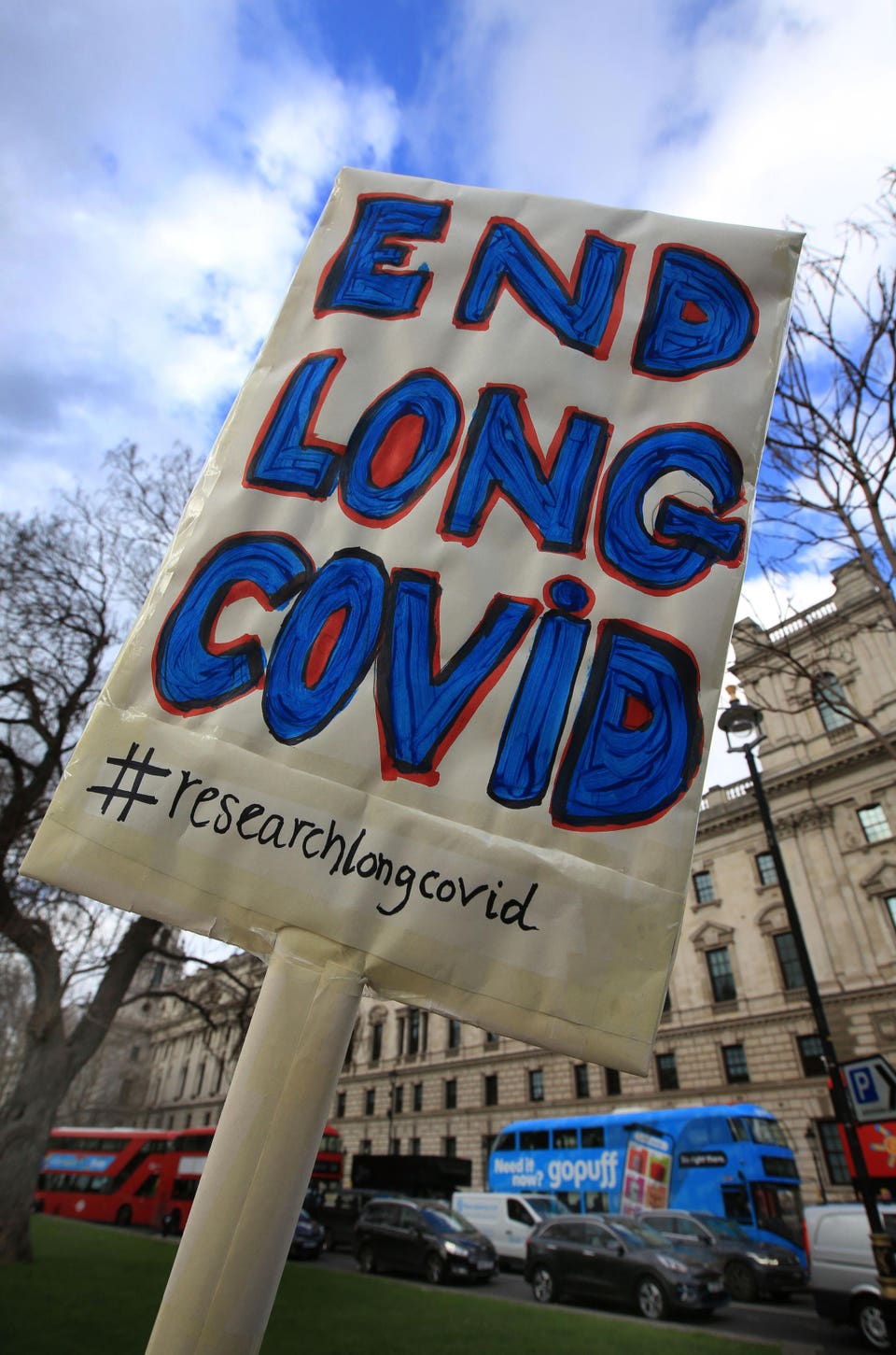Long Covid: 16% Of Patients Could Experience Symptoms One Year Post Infection


A protest took place in Parliament Square, London, demanding that the government allocate funds for research into Long Covid-19. The demonstrators argued that many individuals have experienced long-term health complications as a result of exposure to Covid-19 variants over the past two years. Meanwhile, a recent study revealed that approximately 16% of long Covid patients continue to experience symptoms for more than 12 months after their initial infection. The most common persistent symptoms after 12 months were related to the head, eyes, ears, and nose, fatigue, and gastrointestinal issues. The study also found that even among individuals who tested negative for Covid-19, extreme fatigue was prevalent in 6.8% of cases.
Juan Carlos Montoy, the lead author of the study and an associate professor at UCSF’s Department of Emergency Medicine, stated that it was common for symptoms to resolve and then reappear months later. He highlighted the importance of considering the trajectory of symptoms over time, as measuring at a single point in time may underestimate the true impact of the disease. The study also revealed similar patterns of symptoms between the Covid-positive and Covid-negative groups, suggesting that the burden of post-illness symptoms may be high for various illnesses, not just Covid-19.
Data for the study was collected from 1,741 adults who had experienced Covid-like symptoms and had undergone either antigen or PCR tests at healthcare centers across the United States. Out of the participants, 1,288 tested positive for Covid-19, while 453 tested negative. The participants self-reported their symptoms every three months for a year. The majority of participants identified as women (67.4%) and white (72%).
The study also found that 21% of the Covid-positive patients reported contracting the virus again during the study period, while 38% of the Covid-negative patients reported new infections. The researchers noted that the inclusion of participants with Covid-like symptoms and negative test results helped to characterize and differentiate the symptoms associated with post-Covid conditions. They emphasized that symptoms can fluctuate over time and are not unique to Covid-19 or post-Covid conditions.
However, one limitation of the study was the lack of information regarding the specific conditions that may have caused acute symptoms in the participants who did not test positive for Covid-19. The researchers also highlighted the emergence of cognitive difficulties and extreme fatigue after six months, which are commonly reported in post-Covid conditions. They concluded that understanding the true effects of the disease requires considering the evolving nature of symptoms over time.
The study’s findings were published in the Centers for Disease Control and Prevention’s Morbidity and Mortality Weekly Report (MMWR).
